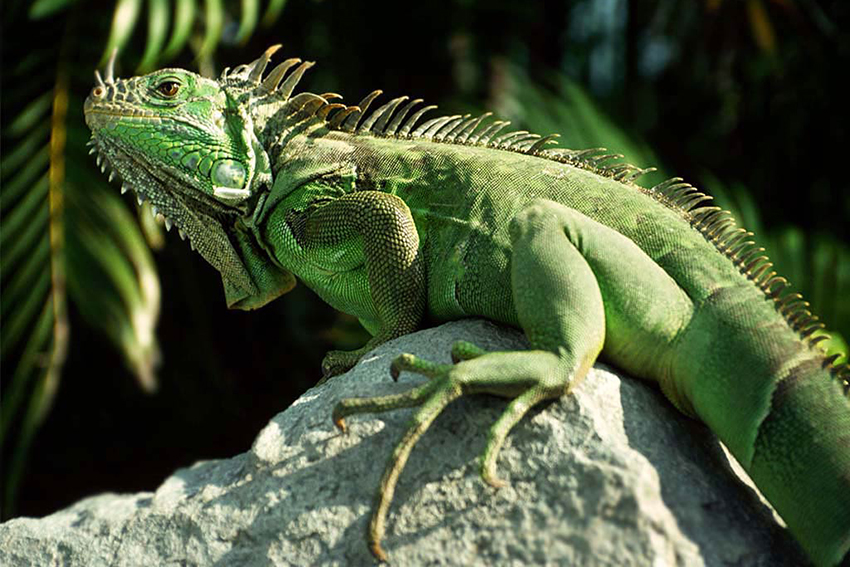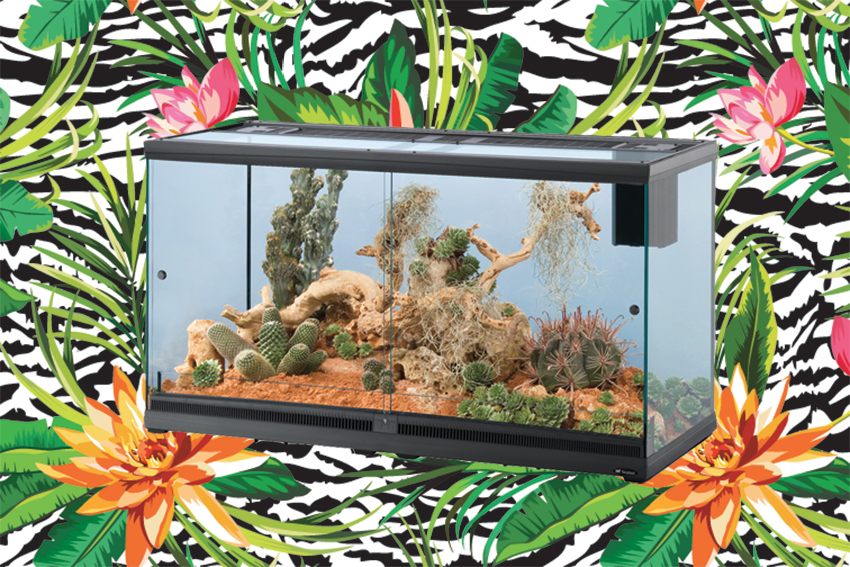Iguanas are fascinating animals and increasingly popular as pets. Many families are falling in love with this animal, which, although it is quite different from a kitty or a puppy, is nonetheless as nice as any other companionship animals.
The iguana has, to all effects and purposes, become a pet. But if you decide to adopt one, you do need to know some of the basic rules so that it has a long and happy life in your care.
The iguana is a gorgeous reptile with a somewhat prehistoric look not unlike a lizard, only much bigger and far slower. Adult males, in particular, have a really spectacular crest along the ridge of their back.
They originated in South America, in a vast area that spans from southern Mexico to central Brazil, Paraguay, the Galapagos Islands, Bolivia and the Caribbean.
In nature, the iguana can grow to become very large, although this is somewhat rare. In captivity, on the other hand, because of the different nutrition they get, they will reach a length of a metre and half at most.
Although iguanas easily adapt themselves to living with humans, this does not mean they are easy to care for.
You need to give them plenty of space, an earthy enclosure of the right dimensions like Ferplast’s Explora, especially designed as a home for the reptile that gives it absolute tranquillity. The enclosure has plenty of technical specifications, like openings not larger than 3mm that provide it with the right amount of fresh air but also prevent it from escaping.
Caring for an iguana means keeping in mind that it’s a cold-blooded creature, so you have to create environmental conditions that are similar to those of its natural habitat, that is, hot and humid.
Experts recommend putting a UV-B ray lamp in its home and to leave it on for at least 12 hours a day so that it can get all the heat it needs to grow, survive and calcify its bones.
In terms of nutrition, the iguana can eat lettuce leaves, but also gourd, courgettes, beans, carrots and bell peppers. Make sure, however, that the vegetables and flowers you feed him have not been treated with pesticides or other poisonous substances. Give him very little fruit, and never feed it insects or meat!
Now you’re ready to welcome a truly prehistoric animal into your home!


